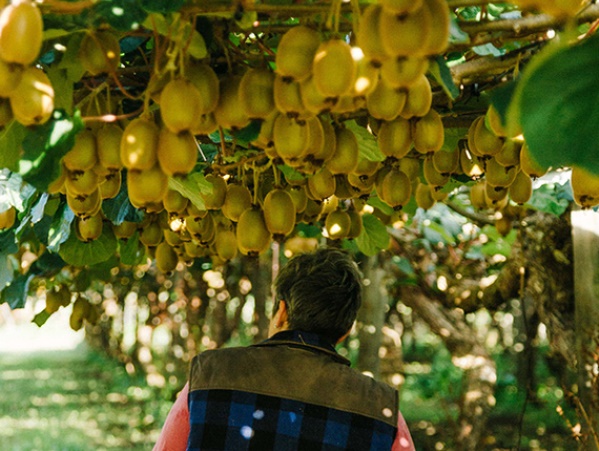Two of New Zealand’s largest horticultural businesses – T&G Global and Zespri – are teaming up with science organisation Plant & Food Research and other industry partners on a new project to research, develop, define, and promote sustainable and regenerative horticulture practices within the kiwifruit, apple and berry industries.
The project, which has the potential to be one of the most extensive horticultural research programmes in Aotearoa, is partially funded through the Ministry for Primary Industries’ (MPI) Sustainable Food and Fibre Futures Fund. Phase one will involve an exploration of regenerative practices and market analysis with the goal to move to a longer-term programme of research including scientific and market validation, along with the implementation of science and grower-backed practices in regenerative horticulture.

T&G Global’s CEO, Gareth Edgecombe, says the project is cutting edge and hugely exciting for the industry. “Sustainable food production is at the heart of Aotearoa’s horticultural sector. For generations, we’ve grown premium, healthy fresh produce for consumers around the world, evolving our practices as our knowledge grows and consumer needs change.
“We know there’s always more we can do to be better. And with consumers and businesses alike seeking to consume and produce food that improves, enhances and supports the environment in which we grow in, we, together with Zespri and Plant & Food Research, want to validate and advance regenerative horticultural practices in Aotearoa.
“While a lot of global research has gone into regenerative agricultural practices, the same can’t be said for horticulture which is heavily nuanced and relies on continual research and innovation into growing practices, pest and disease management, and on orchard management practices. With our nation’s interconnected relationship with our land, natural resources, people and produce, it’s vital we understand what regenerative horticulture means for Aotearoa, and for our brands and fresh produce in the global market,” says Edgecombe.
Zespri has a strong commitment to sustainable practice, says Zespri’s Executive Officer for Sustainability Rachel Depree, with the project representing an important opportunity to explore what the regenerative horticulture concept could mean for the kiwifruit industry.
“Our market research also indicates consumers are increasingly interested in the idea of regeneration. As an industry, we already have a focus in soil health, water quality and carbon management – all of which contribute to a food system that supports the environment while producing high-quality, healthy kiwifruit for consumers around the world.
“It’s important we understand how these practices link to this emerging concept of regenerative horticulture and what value there is in this for our consumers and our growers,” says Depree.
The first year of the project is currently underway and focused on conducting scientific research on what is known about regenerative practices. In parallel, market analysis will be undertaken to understand consumer perceptions and drivers. This will include working with Iwi and growers to collaborate and build a widely agreed definition of regenerative horticulture for the industry. Opportunities will be identified, as well as the development of a robust measurement and validation process, which will then take the project to the next phase.
Dr Brent Clothier from Plant & Food Research says regenerative agriculture means different things to different people and it’s important to put any global principles into an Aotearoa New Zealand context.
“In general, our growers are well connected to what their land needs to produce high yields and high quality. For Aotearoa, regenerative horticulture is also about better engagement with workers, linking with communities, and the principles of Te Taiao and the mātauranga that underpins it. If our sector wants to remain competitive in the global marketplace, it’s important that we use scientific analysis to quantify the impact of our horticultural practices on the land and soil health in the long term, and align our practices and our reporting with what the consumer expects from our premium produce.”



